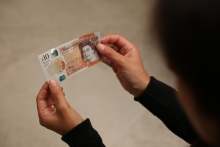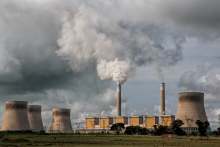What is ethical banking?
Banks choose where to provide financial support, in the form of loans, investments or insurance. This support determines whether corporations can build an oil rig, expand their munitions production or develop their wind farms. In other words, it decides what our economy, industries and planet look like now and into the future.
Ethical banks avoid funding the most toxic industries and redirect the money to companies or organisations that are doing something positive.
More and more banks are developing ‘ethical investment policies’. Most often, these policies will say what the bank can’t fund – for example, they may not be allowed to fund nuclear weapons.
Some high-street banks are making a lot of noise about these policies without actually making major steps towards change. For example, they may only rule out the very worst of industries, such as cluster munitions (which are banned under international law), or leave their policies riddled with loop-holes so they can still channel money to fossil fuels.
What are the the most ethical policies?
The best ethical policies, though, can really determine the direction of a bank’s finance. For example, it might include:
- no funding of fossil fuels
- no funding of animal testing
- zero tolerance of human rights abuses
A truly ethical bank will also finance more ethical alternatives, such as solar panel companies or more sustainable farms. This is crucial because it creates the infrastructure we need for a greener future.
At Ethical Consumer, when deciding whether a bank is ethical, we also look at whether it is dodging tax or increasing inequality through excessive pay of directors or unequal pay e.g. for women or ethnic minorities.








